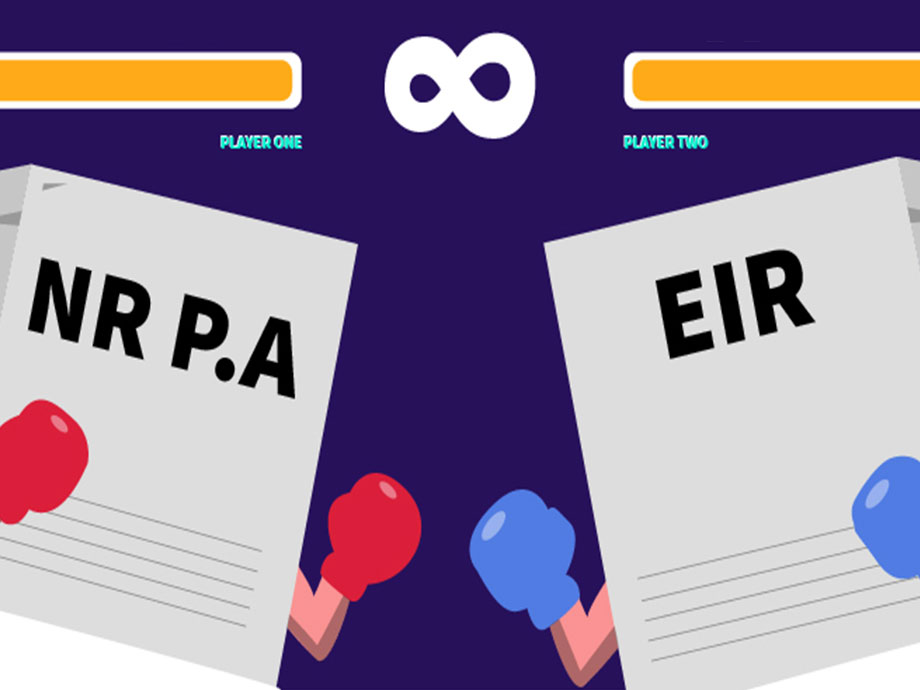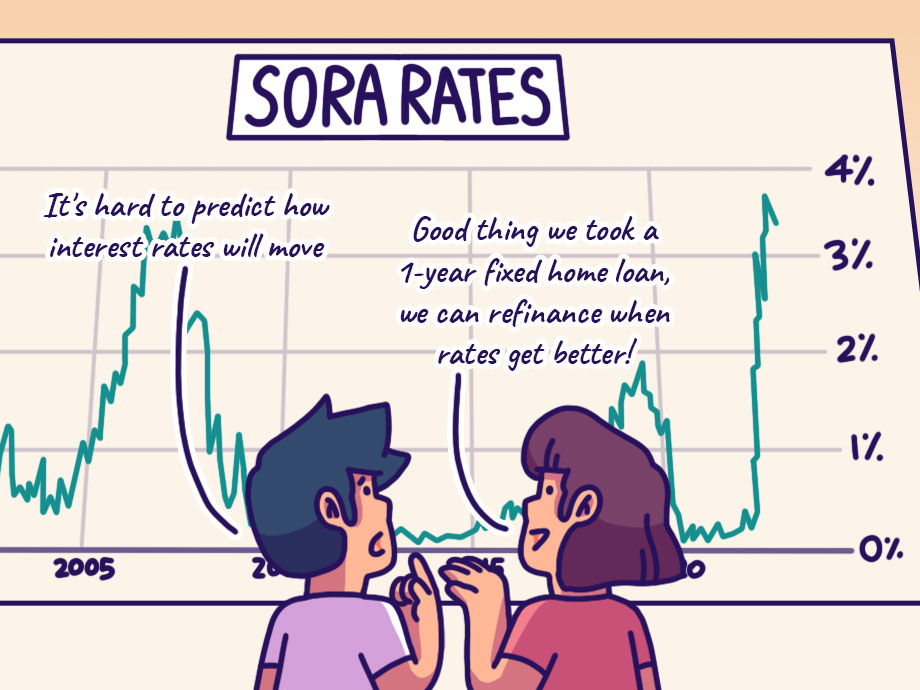Financial Planning | Managing Debt | Personal Finance | Article
Should I Get A Personal Loan?: Here’s When We Think You Should
by The Simple Sum Team | 13 Jul 2022 | 8 mins read

This article is brought to you by CIMB CashLite Personal Loan. New-to-bank customers can apply to get a loan for as low as 3%* p.a (EIR 5.64% p.a.) with zero processing fee.
What do you do when you’re in a financial pinch and running low on funds? In school, we used to borrow lunch money from our friends to make it through recess. As an adult, while friends are still an option to borrow money from, you could also get a personal loan — it’s different from a housing or car loan.
Provided by banks, a personal loan allows a person to borrow an amount of money based on their monthly income, their relationship with the bank, and their credit score. You could argue that credit cards allow you to do the same thing — to pay for things with money you don’t have right now — but personal loans boast lower interest rates, making repayments more affordable and debt management easier.
But just because personal loans are highly accessible and easy to apply for, that doesn’t mean we should be drawing on them just because we would like to spend more money than we have. Instead, good financial management says that a personal loan should be taken for good reasons. So, what counts as a “good” enough reason?
Paying off existing credit card debt
It’s not unrealistic for some of us to let our debt get out of hand, especially when we weren’t taught good financial habits before taking them on. Specifically, you may have accumulated credit card debt that you’re having trouble paying off right now. A personal loan could be your answer to clearing your credit card debt before it snowballs even more.
Credit card debt can absolutely total your finances in the blink of an eye. On average, credit card interest rates can go up to 30% per annum, which means that even if you’re just meeting the minimum monthly repayment, the interest incurred on your balance could be more than the amount you’ve repaid.
Related
On the other hand, personal loans are much gentler on your wallet, with kinder interest rates ranging from 3% to 5% per annum. Unlike credit cards where you have to pay a percentage of your card balance as the minimum, the interest rate on a personal loan is fixed throughout the loan tenure. This means that you don’t need to pay more than the specified repayment amount each month, so you can plan your budget as your monthly debt obligation is more predictable.
When applying for a personal loan, add up your credit card owing and choose a loan amount that can cover the full amount to pay it off.
Just a note that when comparing between personal loans to choose a loan that gives you an attractive effective interest rate (EIR). The stated interest rate is just the nominal interest rate, which doesn’t account for the true cost of taking the loan. The effective interest rate (EIR) factors in administrative fees and charges as well.
For example, if you’ve taken a personal loan of $25,000 with a 5% interest per annum but are being charged an additional 1% for processing fees, then the total interest you’re paying back is not just $1,250 but actually $1,500. In other words, while the nominal interest rate is 5%, the EIR is actually 6%!
The repayment schedule – the number of instalments and the frequency of instalments – also affects the EIR.
To decide on the right personal loan, you need to figure out what your needs and capabilities are. Picking a personal loan that demands you pay more every month and with a shorter tenure may not be the best option if you’re having cash flow issues.
Paying for planned big-ticket purchases

With every life stage, there might come big ticket purchases you have to make. This includes paying for that wedding on the horizon, renovating and furnishing your long-awaited BTO, or even replacing your trusty laptop that’s finally given out after years of care and use.
If you weren’t able to build up the savings for it yet but for some reason you absolutely need to make that big purchase right now, you can consider taking a personal loan to pay for it (instead of using a credit card). As mentioned above, the lower interest rates make personal loans much easier to deal with and manage compared to credit cards. And it’s not just the lower interest rates that are an advantage—taking a personal loan can actually aid you in planning out your finances better because of something called a loan tenure.
In essence, a loan tenure refers to the time horizon you’re given to pay back your loan in full. Your loan tenure could be 12 months, 36 months, or even longer. Knowing how long your repayment period will be is going to be helpful as you plan out your monthly budget and finances and will help you complete your repayment with as little trouble as possible.
Note that there may be the option of changing your tenure if circumstances change and you suddenly can’t finish making repayments in the agreed amount of time. But extending your loan’s tenure will come at a price and not all banks offer such flexibility, so make sure that you are confident that your finances can handle the added debt obligation.
If you anticipate that you’ll have cash flow issues once you make the big purchase or if you’re unable to save up in time for any reason at all, a personal loan will allow you to redirect your efforts towards charting your expenses with more visibility once you’ve determined the monthly repayment amount. But of course if you can, it’s always best to pay upfront with your hard-earned savings.
Bailing yourself out of an emergency
Another instance that personal loans could be taken is when you face sudden financial emergencies, such as medical emergencies you can’t afford.
While it’s always best to have an emergency fund at the ready and an insurance policy that will alleviate the amount you’re paying upfront, there may be times where we’ll be unprepared for sudden crises or that a bigger amount than we have is required.
So, if you’re not liquid enough to get through the crisis with your savings, then personal loans are probably your next best bet. But you shouldn’t make a habit of this and should instead work on your financial habits, like saving before you spend and building a solid emergency fund that can weather all kinds of storms without landing you in dire straits.
Related
Personal loans are tools, not toys
When you have a great need, personal loans are easily accessible and most banks in Singapore will let you apply for one. But before taking on a personal loan, one must pay attention to the important details, such as the nominal interest rate (also known as the advertised interest rate), the effective interest rate (the real cost of taking on this personal loan, inclusive of additional fees and processing charges), the loan tenure (the repayment period), and the repayment schedule.
We should also remember that just because personal loans are so easily accessible, it doesn’t mean that financial irresponsibility is suddenly okay. We still need healthy financial habits to manage our repayments and debts, and to generally lead happier lives. Personal loans can help manage financing needs with repayment schedules and stretching repayments for as long as you need, but they’re tools meant to be used for specific purposes —they’re not just for the thrill of feeling temporarily rich!
Content sponsored by CIMB CashLite
If you’re looking for a personal loan, whether it’s to pay for an emergency, to fund a large expense, or to consolidate your existing debt, you can consider applying for CIMB CashLite Personal Loan.
CIMB CashLite Personal Loan offers flat interest rates as low as 3%* p.a. (EIR 5.64% p.a.) for new-to-bank customers and zero processing fee. This is one of the lowest online published rates among bank as of 1 June 2022. You can also earn cashback up to $1,000* for a 3-5-year loan of at least $5,000.
For the avoidance of doubt, the information shared above is provided strictly on a non-reliance basis, and does not constitute any form of advice from The Simple Sum or CIMB Bank Berhad. You should make your own assessment of your financial situation and needs.
*Terms and conditions apply


















